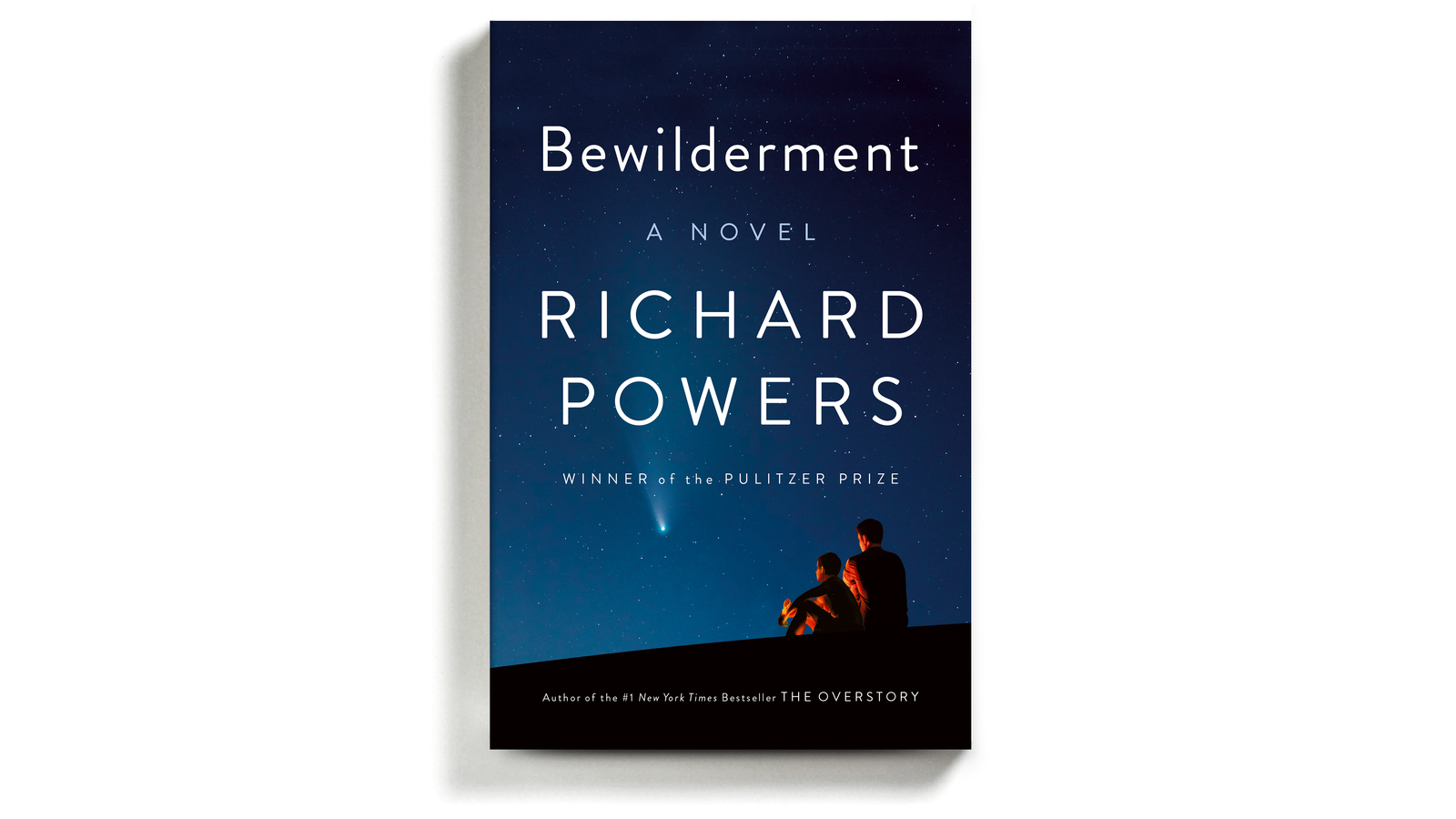Bewilderment by Richard Powers
Reviewed by Michael Attard
Richard Powers’ first book was published in 1985. His twelfth novel, The Overstory, released in 2018, won the Pulitzer Prize and was a #1 New York Times best seller. Bewilderment is his thirteenth book.
Theo and Robin are a bereaved father and son. Their wife and mother, respectively, was recently killed in a car accident. The untimely tragedy might be presumed to be the basis for the characters’ psychological struggle. This woman, Alyssa, is presented as almost saintly, as a philosophical ideal, as someone whose unselfishness could serve as a model for how to save the world. And this is the broader story. It is not about losing a wonderful, loved person, it is about losing the planet and all the bewildering life that inhabits this speck in the universe.
Theo is an astrobiologist, and his work involves simulating life that might exist on planets that are being discovered. Robin is only nine years old, but like his father, he is amazed at “the outrageous size of emptiness.” Theo wants to know that another world is alive. It seems that Theo is having a difficult time in finding meaning in the emptiness, or perhaps more succinctly, the nothingness. Robin relates to his father’s quest but has no trouble understanding that all life on Earth has incredible meaning. In fact, it is the inexorable sprint by humankind toward the death of our planet that has created an eco-trauma for Robin.
Robin has troubles at school, and the involved authorities are quick to come up with a multitude of diagnoses and pharmaceutical suggestions. Theo will not agree to any such thing and says, “I developed my own crackpot theory: Life is something we need to stop correcting.”
An activity that helps Robin relax is listening to his father tell stories about his planetary simulations. Incredible worlds where, paradoxically, life can abound: “where science knew it could not live.” These science fiction-like accounts could not always distract Robin from his distress at what humans are doing to the Earth. This deep-thinking young boy thought that, perhaps, searching for life on other planets is futile. After all, we probably will not be here.
Throughout the book, the author describes several of Theo’s planets. While I did not find these sections of interest, it struck me later that, possibly, these wildly different planets were a metaphor for people. We all have our idiosyncrasies, which make us truly unique. It does not necessarily mean that something is wrong with us, right?
The storyline revolves around Robin and his attempt to wake up the world. From drawings of endangered species to holding up protest posters in front of government buildings, much like his mother had done, Robin is clear on his mission. But his sensitive nature leads him to be prone to anger and utter frustration, even if he is the only one who gets hurt.
This leads his father, through an acquaintance, to allow Robin to try a form of neurofeedback. The researcher explains that this is “an assistive procedure,” a kind of behavioral modification program. As the researcher explained, “We train him how to attend to and control his own feelings.” There is an interesting twist to the story in that the researcher had previously collected and stored neurofeedback data on Robin’s mother. In one sense, she becomes his therapist. It may sound like the book has an element of science fiction, but there are currently many studies underway looking into how neurofeedback might serve as an emotional treatment for psychiatric disorders.
Theo could see the changes in Robin. “He was quicker to laugh now, slower to flare. More playful when frustrated. He sat still and listened to the birds at dusk.”
A portion of the fictitious story describes a short-sighted government bent on a self-serving agenda which has little use for anything not immediately providing monetary reward. Freedoms are being curtailed, there are fires and droughts, and there is a brain contagion among Texas cows. For Theo, it means the cancelation of funds for a telescope that would change our knowledge of the universe. For Robin, it meant the end of his trial neurofeedback therapy.
Robin regresses to an unhappy state: “a troubled boy, hurt by seeing what the sleepwalking world could not.” And Robin did see well – very well. He just could not understand how humans developed the habit of turning a blind eye toward what does not immediately affect them.
The author believes that we should be bewildered by the expanse of life that surrounds us. Perhaps if we slow down, even a little, we will come to realize that we are smaller than we think and assume a humbler role as steward rather than master.
Robin and Theo go camping in the wilderness. Even there, far from people, they see pain imposed upon nature. Robin goes into the cold water in an attempt to help.
The Reviewer
Michael Attard is a Canadian who has lived in Gwangju since 2004. Though officially retired, he still teaches a few private English classes. He enjoys reading all kinds of books and writes for fun. When the weather is nice, you may find him on a hiking trail.





